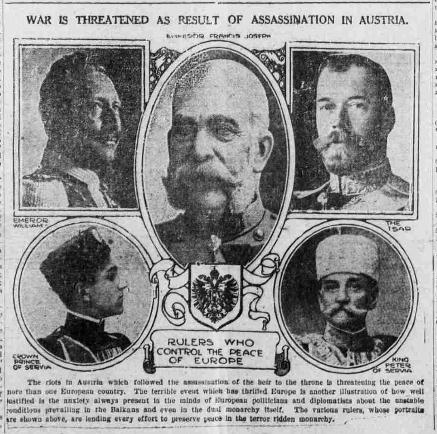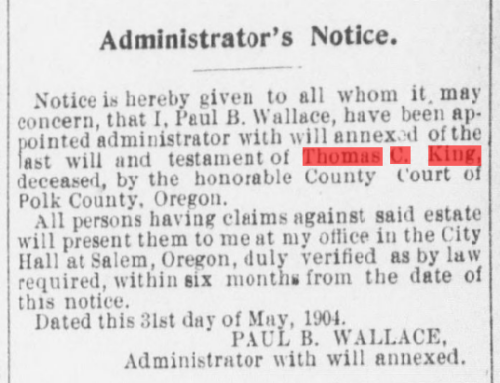by Richard van Pelt, WWI Correspondent
Recognizing that war might be coming, the paper published the following:
On the diplomatic front, positions are hardening as each side warns the other and each side begins preparing for the possibility of war:
- Russia.Austria-Hungary: The Russian Foreign Minister Sazonov warns Austria not to try to intimidate Serbia – The Austrian Ambassador Szápáry responds reassuringly.
- Germany & Russia: In Britain, Germany’s Ambassador Lichnowsky warns his Russian counterpart that the Serbian situation is growing very dangerous
- In Constantinople, the German Ambassador warns Belin that “Without doubt, Turkey today is totally incapable of carrying out an alliance.”
The nineteenth is a Sunday and there is no edition of the Capital Journal. In Great Britain King George V reviews the fleet as it departs Portsmouth for maneuvers – Churchill, the First Sea Lord, describes it as “incomparably the greatest assemblage of naval power ever witnessed in the world.”
At a secret meeting, the Austrian Council of Ministers approves the final text of the Serbian ultimatum and fixes its date for delivery on July 23rd. Austria, having been humiliated, losses and humiliation during two prior wars in the Balkans within the past few years were damaging blows to her prestige and her honor. Austria was not about to suffer a third such humiliation.
The German Foreign Minister Jagow publishes a communiquécalling on the powers to prevent a general crisis while Austria severely criticizes Serbia. This is the first public hint of the impending crisis. The European powers begin to grow alarmed. On vacation off the coast of Norway, the Kaiser is warned that the crisis will soon break and he orders that the German fleet remain assembled in a state of readiness.








Leave A Comment